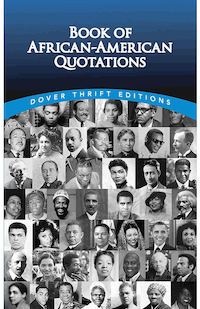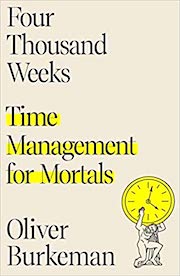 By Cathy Gassenheimer
By Cathy Gassenheimer
Executive Vice President
Alabama Best Practices Center
My morning routine includes drinking coffee, taking a short walk (when it’s not too cold or rainy), and reading a devotional or collection of insights and bits of wisdom. This past year, I’ve used Leo Tolstoy’s A Calendar of Wisdom as my food for thought and contemplation.
After about two months with the Calendar of Wisdom (late February 2021), I began drafting this post, then set it aside to write about more pressing concerns and prep for our (as always) wonderful PCN/KLN spring sessions.
As you’ll remember, distant though that hope may be now, we were gaining in optimism in late winter 2020 as we heard the news that vaccines were becoming available and we might soon be off the pandemic roller coaster. Alas, the wild ride has continued with the Delta and Omicron outbreaks, and our hope continues to be mixed with trepidation.
All the more reason, I think, to begin this New Year with the idea of a daily devotional. It doesn’t have to be a strictly religious or spiritual activity. Although Tolstoy focuses mostly on “sacred texts,” we can find many classic and modern “thought of the day” resources out there to help us explore our personal lives, our work lives, and our inner selves. We can even read them on our digital devices. (I’ve included a few possibilities below.)
If you don’t have a particular preference, let me tell you more about Tolstoy’s version. Perhaps you’ll find it as intriguing as I did.
Tolstoy’s 15-year capstone project
 The Russian author of War and Peace and Anna Karenina devoted 15 years of his life to compiling this devotional, and readers can tap into it daily for advice and reflection. For English speakers, access didn’t become available until the late 1990s, when it was published in an English translation.
The Russian author of War and Peace and Anna Karenina devoted 15 years of his life to compiling this devotional, and readers can tap into it daily for advice and reflection. For English speakers, access didn’t become available until the late 1990s, when it was published in an English translation.
The translator, Peter Sekirin, noted the following about this book:
“This was Leo Tolstoy’s last major work. With it, he fulfilled a dream he had nourished for almost fifteen years, that of ‘collecting the wisdom of the centuries in one book’ meant for a general audience. Tolstoy put a huge amount of effort into its creation, preparing three revised editions between 1904 and 1910. It was his own favorite everyday reading, a book he would turn to regularly for the rest of his life.”
When I wrote my first draft of this post almost a year ago, I selected the entry for February 26 to highlight because it really resonated for me. As you’ll see, Tolstoy frequently makes an author’s comment or offers a bit of advice (he’s in italics, no quotes) and then includes a variety of quotations.
After a long conversation, stop and try to remember what you have just discussed. Don’t be surprised if many things, sometimes even everything you have discussed, were meaningless, empty, trivial, and sometimes even bad.
“A stupid person should keep silent. But if he knew this, he would not be a stupid person.” —Muslih-Ud-Din Saadi
“Only speak when your words are better than your silence.” — Arabic Proverb
For every time you regret that you did not say something, you will regret a hundred times that you did not keep your silence.
“Kind people are never involved in arguments, and those who like to argue are never kind. Truthful words are not always pleasant, and pleasant words are not necessarily truthful.” — Lao-Tzu
If you want to be a clever person, you have to learn how to ask cleverly, how to listen attentively, how to respond quietly, and how to stop talking when there is nothing more to say.
“Many stupid things are uttered by people whose only motivation is to say something original.” — Voltaire
If you have time to talk before you start talking, think. Is it necessary to speak? Will what I have to say harm anyone?
I marked this page in the devotional, and since then I’ve sought to grow into using this advice more often than not. What do you do to ensure your words matter and that your silence can be as meaningful as any phrase you might speak?
More Sources of Inspiration & Reflection
 Tolstoy’s magnum opus probably isn’t for everyone. In fact, some mornings it’s not quite the thing for me! Here are a few other sources for quick, daily reflection. I like to do these at the front end of the day to get a headstart on stress relief and energize my brain and spirit. If you have other favorite devotionals or quote collections you like, please leave a note in the comments!
Tolstoy’s magnum opus probably isn’t for everyone. In fact, some mornings it’s not quite the thing for me! Here are a few other sources for quick, daily reflection. I like to do these at the front end of the day to get a headstart on stress relief and energize my brain and spirit. If you have other favorite devotionals or quote collections you like, please leave a note in the comments!
Books with daily entries or quotations
► The Daily Stoic: 366 Meditations on Wisdom, Perseverance, and the Art of Living by Ryan Holiday.
One of my favorite essayists, Maria Popova, had this to say about this collection drawn from the three great Greek philosophers of stoicism: “A generous gift of guidance on modern living culled from a canon of wisdom hatched long ago.”
► Daily Inspiration for Educators: Positive Thoughts for Every Day of the Year by Jimmy Casas.
Principal and best-selling author Jimmy Casas developed this daily reader from his popular Twitter feature of the same name. The ABPC’s Stoney Beavers reviewed Casas’ book Handle with Care here on the ABPC Blog.
► Great Quotes for Great Educators by Dale Lumpa and Todd Whitaker.
Popular speaker and education leadership consultant Todd Whitaker teamed with the late inspirational Colorado educator Dale Lumpa to share “Over 600 insightful, witty nuggets to motivate and inspire you… and everyone else at your school.”
 ► The Book of African American Quotations edited by Joslyn Pine.
► The Book of African American Quotations edited by Joslyn Pine.
This collection from Dover Books is well-curated and includes quotations from a wide range of African American notables – political and business leaders, entertainers, sports legends, scholars, authors – and educators, including Mary McLeod Bethune, W.E.B. DuBois, Marian Wrignt Edelman, Benjamin Mays, belle hooks, Henry Louis Gates Jr., Marva Collins, J. Saunders Redding, Paula J. Giddings and others.
► 365 Quotes: Inspiration and Motivation for Every Day of the Year by Danny Steele.
Danny Steele, principal of Homewood Middle School and the 2016 Alabama Middle School Principal of the Year, is the author of two new books from Routledge Eye on Education aimed at promoting reflection and motivation: 365 Quotes for School Leaders and 365 Quotes for Teachers. Steele is also the co-author, with Todd Whitaker, of the Essential Truths series.
Books easy to browse for nuggets of wisdom
► Four Thousand Weeks: Time Management for Mortals by Oliver Burkeman.
From the back cover: “Drawing on the insights of both ancient and contemporary philosophers, psychologists, and spiritual teachers, Oliver Burkeman delivers an entertaining, humorous, practical, and ultimately profound guide to time and time management.”
 So, not “day by day” but filled with usable insights on a topic dear to every educator’s worn-out self. Wisconsin principal and ASCD author Matt Renwick put this book on a list of his favorite five reads of 2021. Burkeman, he says, “skewers the self-help industry with humor and research while offering real strategies that can help anyone take back at least part of their lives from an economy that has little interest in your well-being. I will be coming back to this book frequently.”
So, not “day by day” but filled with usable insights on a topic dear to every educator’s worn-out self. Wisconsin principal and ASCD author Matt Renwick put this book on a list of his favorite five reads of 2021. Burkeman, he says, “skewers the self-help industry with humor and research while offering real strategies that can help anyone take back at least part of their lives from an economy that has little interest in your well-being. I will be coming back to this book frequently.”
► Leading Literate Lives: Habits and Mindsets for Reimagining Classroom Practice by Stephanie Affinito.
In her review for MiddleWeb, “How Our Reading and Writing Lives Impact Kids,” teacher and teaching coach Rebecca Crockett writes that Affinito’s book “is full of ways to alter mindsets and set habits to develop educators who are the ‘real deal’ – those who truly practice what we preach – so we can pass the love we have for literacy on to our students authentically.” You can also read this article by Affinito to understand more about what she’s up to.
► The Onward Workbook: Daily Activities to Cultivate Your Emotional Resilience and Thrive by Elena Aguilar.
This companion volume to a 2018 book by the respected education consultant and “coach of coaches” is quite lengthy and filled with so much advice and so many activities that one Amazon reviewer complained there was “too much” good content. Sounds perfect for browsing a few minutes each day and discovering new tools and insights.

0 Comments on "2022: A Daily Reflection Activity Can Ease Stress and Enliven Thinking"